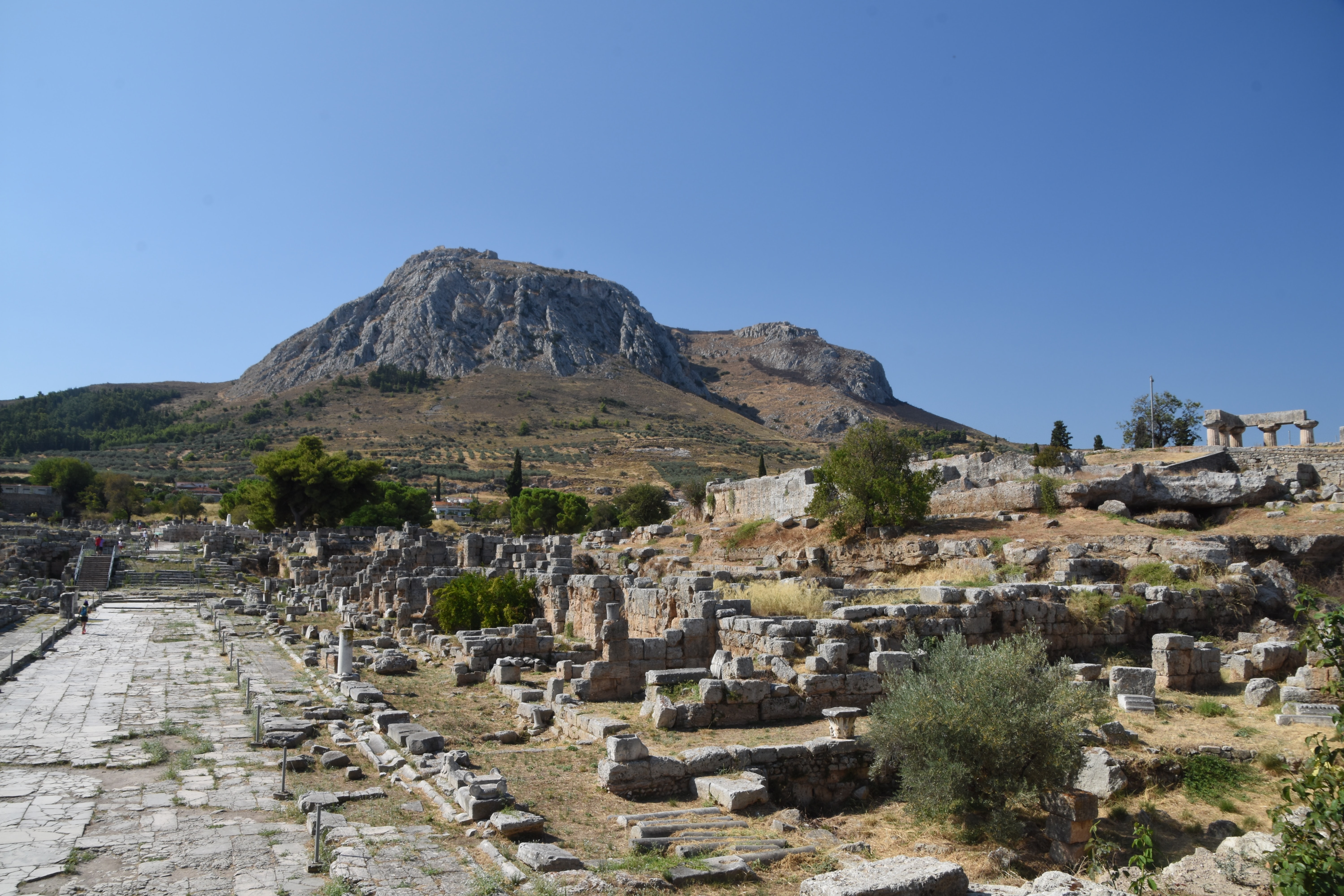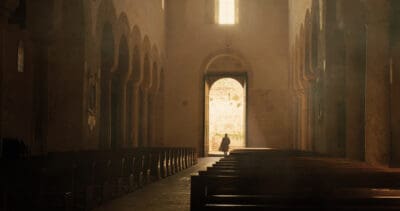What drove Paul to do what he did?

“But while Gallio was proconsul of Achaia, the Jews with one accord rose up against Paul and brought him before the judgment seat.” – Acts 18:12
“For we must all appear before the judgment seat of Christ, that each one may receive what is due him for the things done while in the body, whether good or bad.” – 2 Corinthians 5:10
Several years ago, I stood at the very place where Paul faced Gallio, the bema (judgment seat) of ancient Corinth. As I looked at the mountains looming over the site of ancient Corinth, and at the coastline below, all of it certainly as it was in Paul’s day, I was in awe at the significance of the moment. Paul had been suffering greatly for the gospel, and had experienced beatings and imprisonment, riots, and shouted opposition. In Athens, he had been scorned, mocked, and ignored by the philosophers on Mars Hill. By the time he came to Corinth, he says he was with them “in weakness, fear, and much trembling.” There he “resolved to know nothing except Jesus Christ, and Him crucified.” Knowing that Paul was growing weary and possibly discouraged with the harshness of the life of suffering he was experiencing, the Lord spoke to him in a vision, “Do not be afraid; keep on speaking and do not be silent, for I have many people in this city.” So, Paul stayed in Corinth for a year and a half, speaking boldly for the Lord. As a result of his intense and courageous ministry, the church in Corinth was born and grew strong.
However, the Jews rose up against Paul and hauled him in front of the Roman proconsul, Gallio. Paul therefore stood before Gallio’s bema, and was prepared to give an account for his life and ministry. As it turned out, however, Gallio cut off the Jewish attack and threw the case out of court. Paul was completely vindicated.
As a direct result of this experience, Paul wrote very poignantly to the Corinthian believers concerning the motivation for the intensity and constancy of his evangelistic ministry: For we must all appear before the judgment seat (bema) of Christ, that each one may receive what is due him for the things done while in the body, whether good or bad. Since, then, we know what it is to fear the Lord, we try to persuade men (2 Cor. 5:10-11). Paul’s abiding passion in life was to do everything he did for the glory of God, knowing full well that someday he would have to stand before Christ’s bema to give Him a full account. For this very reason, he says, he constantly strove to keep his conscience clear before God and men (verse 9).
As I stood in front of the actual bema of Gallio, my mind went ahead to the end of my own life. I know that I also will stand before Christ and give an account of my life. I want to live for His glory, share His gospel, do the works He’s ordained for me, love the people He puts in my life. I want to know the power of His Spirit, share in the fellowship of His sufferings, and be poured out for Him daily until the day of the bema. To help me in my remembrance, I bent down and picked up a small, dusty rock from the ground in front of the bema. I brought it home from ancient Corinth, and it will serve as a tangible and hard reminder of the Great Day that is coming.
“Paul’s abiding passion in life was to do everything he did for the glory of God, knowing full well that someday he would have to stand before Christ’s ‘bema’ to give Him a full account.”
One final note. As I climbed up the raised stone platform near the bema of Gallio, I saw a plaque which had been put there some time ago. The words were hard to make out, but poignant once I understood their message. It was another statement from Paul’s second letter to the Corinthians: For this slight momentary affliction is preparing for us an eternal weight of glory beyond all comparison (2 Cor. 4:17).
This is the glory I yearn for, and to which I strive daily. Do the same, dear friend, while you have life and breath, no matter how many the sufferings that come from following Christ fully.





